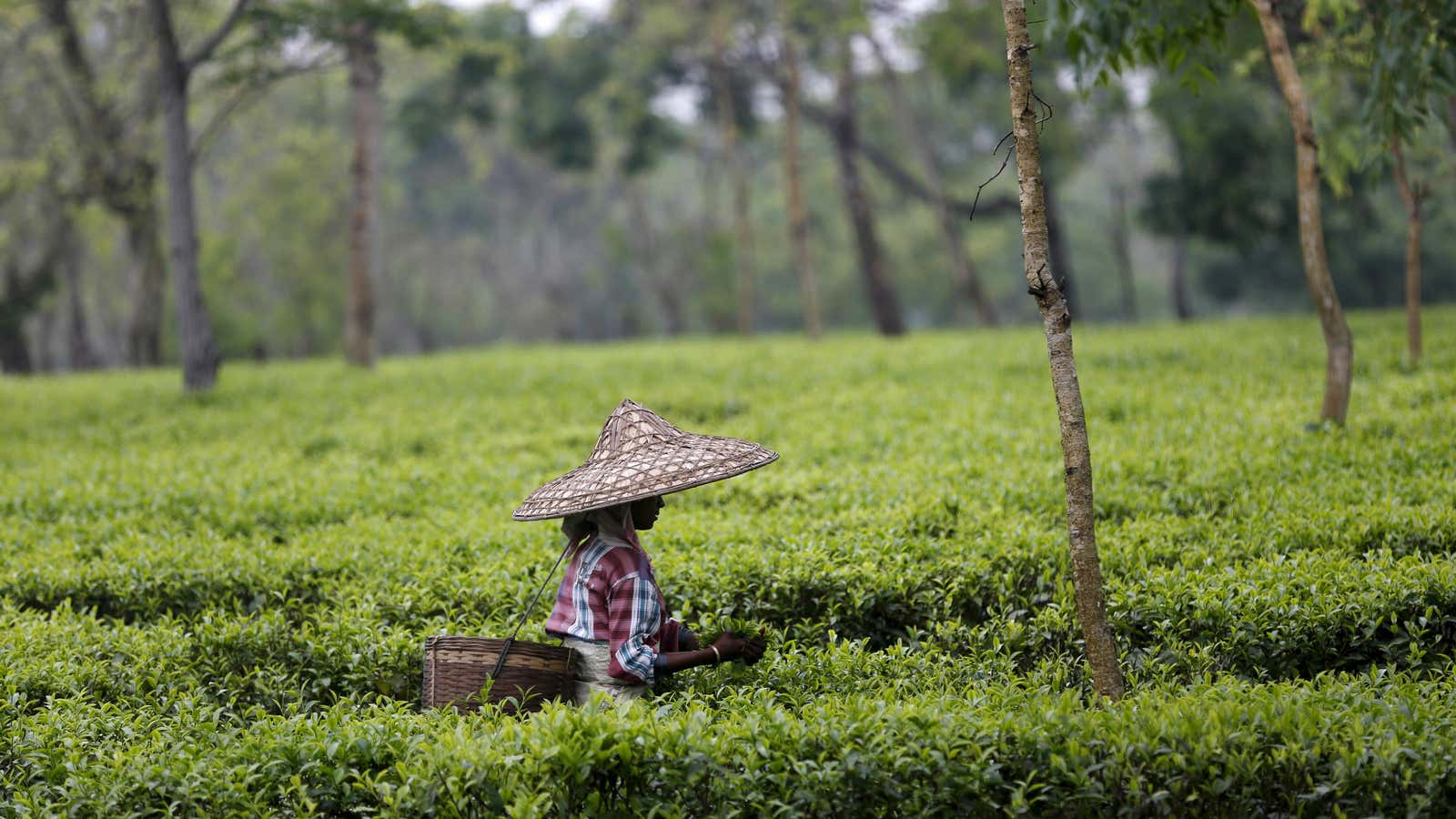The global tea industry has had its hands full with the economic implications of the Ukraine war. But hidden away is another problem it needs to handle: rights abuse in plantations.
Around 13 million tea estate workers suffer “endemic human rights abuses” in India, Sri Lanka, Bangladesh, Kenya, Uganda, and 43 other countries, according to the UK-based Business & Human Rights Resource Centre (BHRRC).
The abuse allegations at the supplier level include violations of freedom of association, health and safety infringements, wage payments, and living standards.
“As estate managers look to cut costs in an increasingly unprofitable industry, there is a growing trend towards the use of temporary contracts, third-party labour providers and other precarious employment arrangements,” the BHRRC report (pdf) published earlier this month said.
“These heighten workers’ vulnerability to abuses, including sexual exploitation and health and safety violations, and make it more difficult for workers to unionize to collectively defend their rights,” it said.
The report detailed responses from 16 tea majors and retailers—Starbucks, Unilever, Marks & Spencer, Tetley, Morrisons, Twinings, Ahmad Tea, Bettys & Taylors, Ekaterra, Goodricke, James Finlay, Jenier, Plus, Ringtons, Tesco, and Typhoo—buying from estates where 47 of the 70 alleged human rights abuse occurred. Out of 16, only UK-based Plus did not respond to the allegations, the report said.
The lowest rung in the tea-supply chain is the worst-hit
While the cost of tea production has risen over the years, prices have largely remained unchanged. Climate change and the Ukraine war are only the most recent problems that have added to the burden, the BHRRC report has stated.
And it is the tea estate workers that pay the highest price. Apart from already low wages, they face other persistent problems like “unpaid overtime, recurrent indebtedness and degrading and unsafe living and working conditions—including endemic sexual harassment and abuse,” the BHRRC report said.
All this is despite most companies having policy commitments in place to protect labour rights. This makes the full disclosure of supply chains by companies pertinent, so as to ensure corporate accountability.
How Unilever and Starbucks deflect responsibility
Some of the world’s largest tea buyers have disclosed where they source their tea from, but many have not published details of their supply chains, the BHRRC report said. “...the only thing stopping companies from being transparent is their own commitment and willingness,” it said.
For instance, in Bangladesh’s eight tea estates, from where Netherlands-based Ekaterra purchased tea in 2022, nearly 150,000 tea workers put forth their demand for a wage increase.
Similarly, in Sri Lanka, several plantation companies reportedly refused to pay the increased wages to tea estate workers, citing it would cause them to incur significant financial losses. Starbucks, Unilever, Marks & Spencers, Tetley were some of the tea conglomerates that buy tea from Sri Lanka’s plantations.
India’s story is not any different.
The BHRRC report found that responses by five companies—Morrisons, ekaterra, Ringtons, Marks & Spencer, Tetley—had “almost identical wording,” while deflecting the responsibility for uplifting wages to other entities such as the local government and their suppliers.
The investigation found that companies don’t engage directly with tea estate workers to assess their working conditions and demands.
“There appears to be little engagement with suppliers or engagement with other actors, such as state governments, trade unions and civil society organisations, to mitigate the effects of estate closure or sale or changes in business structure for workers and residents,” the report said.
